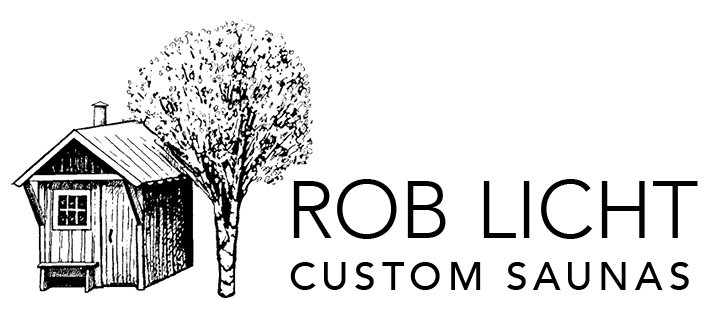Just beyond the reaches of the village of Trumansburg is the settlement of Podunk. When I was growing up, it was home to some thirty people and a cross-country ski shop. The place was run by Osmo Heila, a Finn, who also sold steam juicers and sauna stoves. Ozzie was an ambassador for all things Finnish. There was a rustic ski lodge, a modest circuit of trails, and a sauna. I was good friends with the family and spent winters there skiing the trails and summers taking saunas and hanging out by the creek.
The original owner of the property, Wilho “Willie” Uitti, was also Finnish, and following tradition, he built the sauna before the house. It was constructed with locally cut wood and with a modest profile. Despite a few upgrades over the years, it maintained a typical Finnish pragmatic aesthetic. New parts were eschewed in favor of jerry-rigged repairs, like the paint can that became part of the stove-pipe. There were a few feminine touches, like curtains in the dressing room, but the sauna room contained only the bare essentials: stove (or kiuas) with its pile of rocks, a water tank heated by the stove, simple benches, and buckets, brushes, and loofas for washing. A window, propped open with a stick, provided ventilation. The spalled concrete floor had a drain and wooden slats, called duck boards, to walk on. The pine wall boards had resinous knots that oozed sap into shapes that made us think of strange creatures, like a speeding weasel. Returning to Podunk in the years after high school, it always seemed the same. The same mementos were in the dressing room, the same plastic buckets were on the benches, and the creatures on the wall had barely moved. But, like the creek meandering behind the sauna, the sauna was slowly changing: being swallowed by the bushes, sinking into the earth, and eroding away.
Taking a sauna consisted of several sessions of heating up, each followed by a cooling down or a plunge into the creek, and lastly, a scrub and a rinse in the sauna room. Afterwards, we relaxed in the house and shared food and drink. Eventually, somebody looked at a clock and we suddenly became aware of the hours that had passed. We called this lost sense of time sauna time.
Applied to everyday life, sauna time means slowing down, stepping away from technology, and observing the subtle changes. It is an appreciation of all that is impermanent. The continuity of life doesn’t come from holding onto things, but from the rituals, traditions, and relationships that one carries in their heart. As the sauna at Podunk slowly degrades into a pile of boards, I am reminded that sauna is much more than just a building and that building saunas is about much more than just carpentry.




